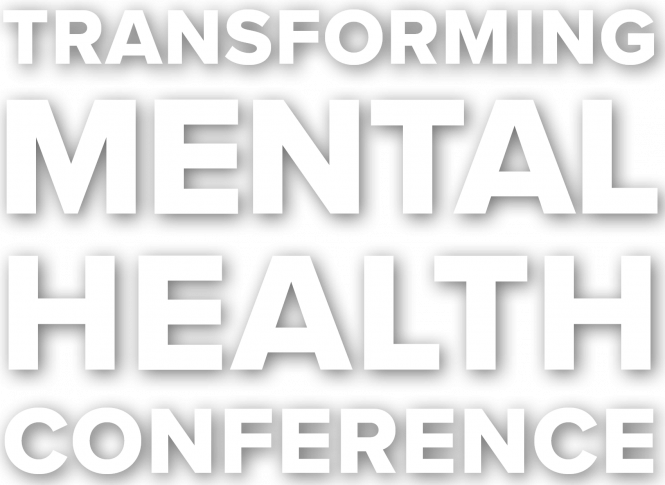
6 -7 October 2025 | Crowne Plaza, Auckland
Transforming mental health conference
Transforming Mental Health: Innovation, Access & Accountability
Aotearoa’s mental health landscape is in need of transformative change. As demand on services grows, so too does the urgency to pause, reflect, and reimagine how we deliver care. This Conference arrives at a critical moment — bringing together policy-makers, counsel, practitioners, patient reps and thought leaders from across the sector to connect, share common challenges and spark innovation.
This is more than just a conference; it’s a space for honest dialogue and fresh thinking, all grounded in the lived experiences of those committed everyday to deliver the best mental care. Together, we’ll explore how to build a more inclusive, human and responsive system whilst shining a light on the overlooked and underserved.
Key themes not to be missed
Mental health and Policy
Stay current on system reforms and deep dive into the Mental Health Bill 2025.
Addiction & Youth challenges
Understand integrated mental health & addiction services. Addressing gambling and other addictions.
Insights on social, digital, cultural and economic challenges facing young people.
Addressing the underserved
Recognise mental health in vulnerable and marginalised populations.
Explore what is Equitable, Accessible & Culturally Safe Care.
Case studies of new models
The role of digital tools & innovation.
Shifting to a community-led approach – challenges, implications?
How are peer-led & lived-experience focuses improving outcomes?
KEY SPEAKERS FOR 2025
Our 2025 key lineup brings together influential leaders, clinicians, and innovators driving change in mental health.
Check out more today.
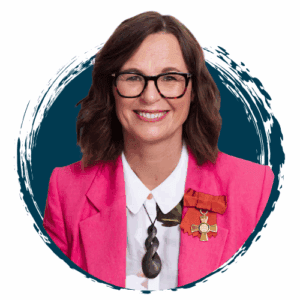
Shae Ronald
Chief Executive
Youthline
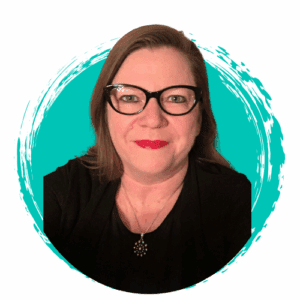
Dr Leeanne Fisher
National Chief of Mental Health & Addiction
Health New Zealand

Maree Guerin
Clinical Implementation Lead IPMHA South Canterbury
Health New Zealand
Why you should be there
- Stay informed on the Mental Health Bill 2025 and sector-wide transformation
- Gain insights from clinical leaders, policy experts, and those with lived experience
- Explore culturally safe care models and community-led approaches
- Dive into new models of integrated care, digital tools, and early intervention
- Access strategies to strengthen resilience, safety, and support for frontline teams
- Build meaningful connections across health, social services, education, and beyond


Who should attend?
- Mental Health Professionals – psychologists, nurses, social workers, and ED staff
- Service Leaders & Management – across Health NZ, NGOs, and community providers
- Policy Makers & Government Advisors
- Peer Support Workers & Lived Experience Advocates
- Primary Care & Addiction Specialists – including PHOs and integrated care teams
- Māori & Pacific Health Providers & Leaders
- Youth-Focused Practitioners – educators, school counsellors, youth workers, and Rangatahi advocates
- Researchers, Academics & Innovators – in mental health, digital health, system reformers
Transforming Mental Health scholarship scheme
If you are a mental health service user or have lived experience of mental health issues and wish to attend the conference in a personal capacity, Brightstar is delighted to make available a limited number of free conference tickets. Register your interest in being considered for a scholarship place by completing the application form.
Applications close 22 September.
Venue
The location and how you can get there
Address
Crowne Plaza Auckland by IHG
128 Albert Street, Auckland Central, Auckland 1010
Agenda
8:30 | Registration and Coffee |
8:45 | Mihi Whakatau |
9:00 | Welcoming remarks from the Chair Megan Elizabeth, Engagement and Insights Manager , Changing Minds |
9:10 | The Mental Health Bill 2025: Legal, clinical, and ethical implications
Iris Reuvecamp, Barrister, Vida Law |
9:50 | Community-led mental wellbeing: Harnessing strengths and navigating challenges
Karen Covell, Chief Executive, Progress to Health |
10:30 | Morning break |
11:00 | Suicide prevention from traditional to transformative: insights from a social scientist
Gabrielle Jenkin, Practice Coordinator , FERNZ |
11:50 | Integrating mental health and addiction care – Treating the patient, not just the substance use
Jo Appleby, Lecturer, Auckland University of Technology Suzette Jackson, Addiction Programme Lead & Lecturer, Auckland University of Technology Debra Lampshire, Professional Teaching Fellow, The University of Auckland |
12:30 | Lunch Break & Networking |
13:30 | Addressing gambling harm in Aotearoa: Balancing growth with support
Dallas Hibbs, Strategic project manager, Purapura Whetu Trust |
14:00 | The changing landscape of primary youth mental health in Aotearoa: Increasing risk, complexity, and youth-led solutions
Shae Ronald, Chief Executive, Youthline Liz Hosking-Clement, Clinical Improvement Lead, Youthline |
14:40 | Centering Lived Experience: What Communities Want and How We Engage Them
Megan Elizabeth, Engagement and Insights Manager , Changing Minds Dan Goodwin , Community Support Manager , Changing Minds |
15:20 | Afternoon break |
15:40 | Too unwell for primary, not unwell enough for acute – Who’s supporting the middle ground?
Paul Skirrow, Associate Professor, University of Otago |
16:20 | Panel Discussion: Margins within the system – Addressing mental health needs in growing and overlooked populations
Sharron Ward, CEO, Refugees As Survivors NZ Grace Ryu, Group Manager, Asian and Ethnic Health Services, Te Whatu Ora Eva Chen, Ethnic Community Engagement Lead, Auckland North Community and Development |
17:00 | Summary remarks from the Chair & networking drinks Megan Elizabeth, Engagement and Insights Manager , Changing Minds |
8:50 | Registration and Coffee |
9:00 | Welcoming remarks from the Chair Megan Elizabeth, Engagement and Insights Manager , Changing Minds |
9:10 | The insider’s outsider view of the transformation journey of Health NZ|Te Whatu Ora: challenges & opportunities
Leeanne Fisher, National Chief Mental Health & Addiction, Health New Zealand|Te Whatu Ora |
9:50 | Unseen Wounds: A clinical lens into the darker spaces of the Human
Melissa Viviers, Psychologist, Trauma Insights Solutions |
10:30 | Morning break |
11:00 | AI adoption in large mental health services
Chris Griffiths, Co-Founder and CEO, Tacklit |
11:40 | The new front door – Integrating digital platforms into primary mental health care
Anna Campbell, Chief Support Services Officer, Whakarongorau |
12:20 | The impact and realities of IPMHA in primary mental health care
Maree Guerin, Clinical Implementation Lead, IPMHA South Canterbury, Health New Zealand |
12:50 | Lunch break & networking |
13:50 | Improving access to mental health services in rural communities
Kathryn Wright, Registered Counsellor, New Zealand Association of Counsellors |
14:30 | Mental Health and Criminal Behaviour: Breaking the cycle between care and containment
Frances Matthews, Medicolegal Adviser & GP |
15:00 | Summary remarks from the Chair & end of Conference Megan Elizabeth, Engagement and Insights Manager , Changing Minds |
Speakers

Chris Griffiths
Read bio
Chris Griffiths is Co-Founder and CEO of Tacklit, an end-to-end platform specifically designed to support mental health care delivery. Chris is an experienced digital, technology and AI senior leader and has successfully delivered on multiple global technology initiatives in the health, education, employment, travel and finance industries. He was Chief Product Officer at the True Digital Group and International Product and AI Director at SEEK.

Dallas Hibbs
Read bio

Dr Leeanne Fisher
Read bio
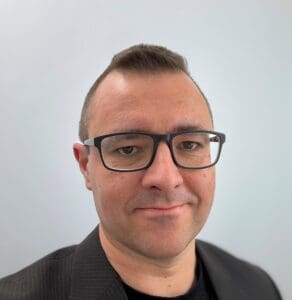
Paul Skirrow
Read bio
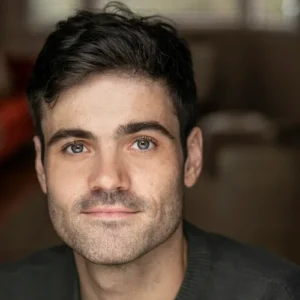
Dan Goodwin
Read bio

Megan Elizabeth
Read bio
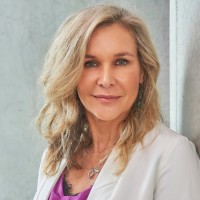
Anna Campbell
Read bio
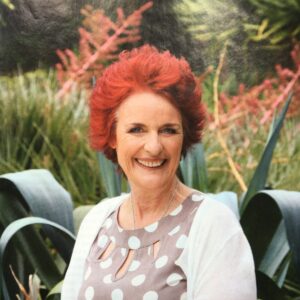
Debra Lampshire
Read bio

Suzette Jackson
Read bio
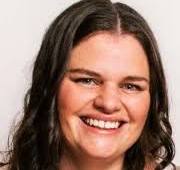
Jo Appleby
Read bio
Dr Jo Appleby oversees AUT’s postgraduate mental health programmes and leads the allied health NESP programme, supporting early-career clinicians in mental health and addictions. A Registered Social Worker, Jo is passionate about trauma-responsive, recovery-oriented care and works closely with Te Whatu Ora and NGOs. Her PhD explored mental health care for rangatahi involved with Oranga Tamariki. With almost 20 years of clinical experience, Jo continues to advocate for equitable and collaborative practice, and champions the importance of social work and lived experience perspectives in quality care.

Kathryn Wright
Read bio

Liz Hosking-Clement
Read bio
Sponsors
Sponsors to be announced
Don't miss out on the connections and credibility boost!
Live B2B events are your chance to shine. Showcase your thought leadership, solidify your market position, and forge valuable connections with potential customers – all at once.
This exclusive event puts you in front of a highly skilled audience hungry for insights. Get ready for meaningful engagement that drives results.
Plus, we have some unique opportunities to put your company, products, and services in the spotlight.
Ready to take your brand to the next level? Contact us today to learn more or secure your spot at this leading event.

Want to join this conference?
Register your interest, we will be in touch when tickets are available.
Individual tickets
PRE SALE - Group 3+
-
Must be from same organisation & book at the same time. For valid tickets, payment by 4 July, 2025.
Groups Multi-buy tickets
Multi-buy 3+ Tickets
-
Must be from same organisation and book at same time. For valid tickets, payment by 6 October, 2025.
Multi-buy 5+ Tickets
-
Must be from same organisation and book at same time. For valid tickets, payment by 6 October, 2025.
Registration Conditions
Ticket Terms
All prices are in New Zealand dollars ($NZD)
A surcharge of 2.5% + GST applies to credit card payments on top of the total amount.
Pre-Sale Tickets are valid only for the specific event for which they were purchased and cannot be transferred to other events. To remain valid, Super Saver and Early Bird tickets must be paid by date quoted.
Group ticket options are valid for registrations from the same organisation, booked at the same time.
By selecting any special pricing offer for classes of organisation, sector, or individuals or using any promotion code, you are asserting to the organiser your right to claim any such pricing offer, and acknowledge the organiser’s right to audit such claim and, if in the opinion of the organiser using its sole discretion the conditions for special pricing are not met, reject any registration.
For full terms & conditions, please visit https://www.brightstar.co.nz/terms-and-conditions
Make an enquiry
Got questions? Write to us.


